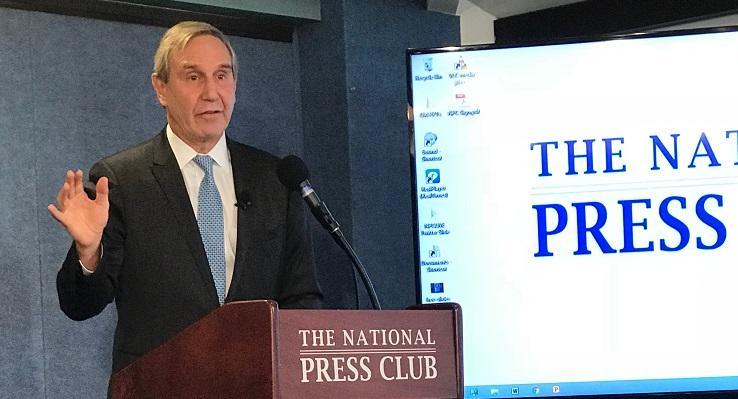Those were the words uttered by astronaut Neil Armstrong as he set foot on the moon in 1969. I feel the same way today as the Global Alliance of Public Relations announced the Global Principles of Ethical Practice in Public Relations and Communications. A consortium of sixty groups including the IABC, PRCA, ICCO, CPRS, PRSA and MEPRA, under the leadership of chairman José Manuel Velasco Guardado has been successful in establishing a benchmark for our industry.
Work began on these principles just after the Bell Pottinger scandal in the fall of 2017. As you will recall, the UK based firm used dummy Twitter handles and other unacceptable tactics on behalf of its client, the Gupta family, in South Africa. A month later, I called for global self-regulation by the industry in a speech to the National Press Club in Washington, D.C. The Global Alliance was convened in Madrid in February of this year and now we have the final product.
There are 16 principles, roughly half of which are related to standards of practice and the balance are the relationship between PR and society. The most important change is the idea that PR firms should work in the public interest. Jean Valin, who has been chief communications officer for several Crown corporations in Canada, told me yesterday, “Acting in the public interest now replaces the prior approach of simply acting for the client. If there is a choice to be made by a practitioner, act in the interests of society.”
There are two other important changes: Honesty, truth and fact-based communications plus Transparency and Disclosure. Given the recent revelation in The Times of London of secret work in 2010 by American-based BLJ Worldwide on behalf of the Qatari bid for the 2022 World Cup in which academics and journalists were recruited to initiate negative coverage of competitor bids from the U.S. and Australia — a direct violation of the explicit instructions of the World Cup selection committee — there has never been a more important time to insist on decent behavior.
There is work to be done in the coming months. Each of the sixty participating groups has six months to ratify the Principles. Non-members of the sixty groups can also pledge to comply (put Edelman down as the first to do so). There needs to be an enforcement mechanism for violators of the Principles; as enforcement will be done by the national bodies. There are holes in the global fabric, meaning that Asia is under-represented in this agreement, notably China and India.
We have a vital role in the Battle for Truth currently being waged in this populist time when there are no common facts and thus a lack of productive discussion. Not every client deserves representation. If the controversial client is contracted, the work must be done in a manner worthy of a profession that aims to educate in the interests of society.
Richard Edelman is president and CEO.


